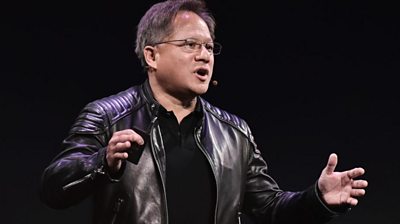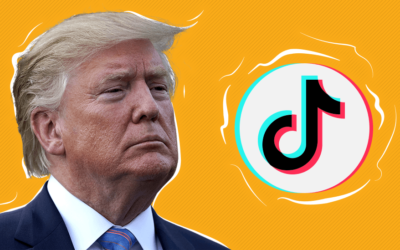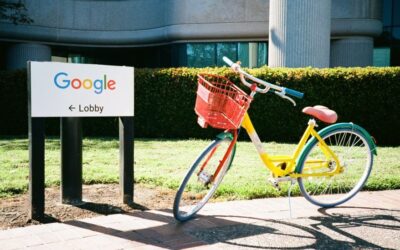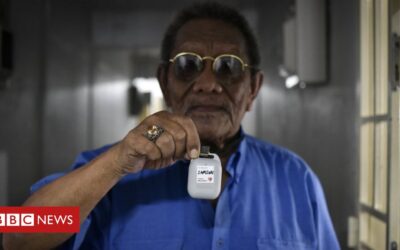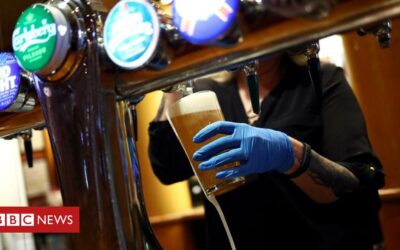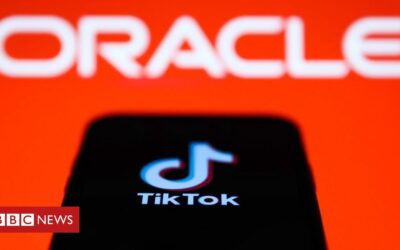Related TopicsCoronavirus pandemicimage copyrightPA MediaAn automotive firm that made the 2012 London Olympic torch has gone into liquidation.Premier Sheet Metals said it blamed “conditions within the automotive sector which were further compounded by the onset of Covid-19”.Based in Exhall, Warwickshire, the firm said a fall in sales had affected its cash flow and could no longer trade.It produces sheet metal parts for the automotive sector, which has been struggling throughout the pandemic.The first six months of the year saw the number of cars built in the UK slump to the lowest level since 1954.Premier Sheet Metals also made the 8,000 torches used in the relay that marked the opening of the 2012 games.’Difficult decision’A spokesman for the firm said despite “substantial cash injections”, extra funding could not be secured, “largely due to the absence of any certainty in the marketplace”.”Following a review of the company’s financial position and cashflow requirements by the company’s advisors, it became apparent that Premier Sheet Metal (Coventry) Ltd could not generate sufficient sales and in turn cash flow to enable it to continue to trade,” he added.”Therefore, very regrettably, and after a period of over 25 years of trading, the decision was taken to commence the process of placing Premier Sheet Metal (Coventry) Limited into liquidation.” Other companies within the group remain unaffected. Follow BBC West Midlands on Facebook, Twitter and Instagram. Send your story ideas to: [email protected] Related TopicsMore on this story
BBC Business News Articles
Nvidia chief: ARM is a technology jewel
The chief executive of the world’s highest-valued chip company Nvidia has promised to create new jobs at ARM if he is permitted to buy it in a $40bn (£31.2bn) deal.Jensen Huang told the BBC’s Rory Cellan-Jones that the takeover represented his confidence in demand for artificial intelligence technologies.Read more
TikTok: Oracle confirms being picked by Bytedance to be app's partner
By Leo KelionTechnology desk editorUS tech firm Oracle has confirmed that TikTok’s owner has formally proposed it become a “trusted technology partner” to the video-sharing app.Full details of the tie-up have yet to be disclosed, but the aim is to avoid President Trump’s threat to shut down the Chinese-owned service in the US.Mr Trump has cited national security concerns, suggesting users’ data could be accessed by Beijing under current arrangements.Current owner Bytedance denies this.It says it has taken “extraordinary measures to protect the privacy and security of TikTok’s US user data”, which is stored in the States and Singapore.Oracle is a database specialist without experience of running a social media app targeted at the general public.Earlier in the day, US Treasury Secretary Steven Mnuchin said that the Trump administration had been contacted by the American firm to discuss plans to make TikTok a US-headquartered company. He said the White House intended to review the idea this week.Microsoft had also attempted to buy the platform, but revealed it had been rejected on Sunday.TikTok has released a statement that does not make direct reference to Oracle.”We can confirm that we’ve submitted a proposal to the Treasury Department which we believe would resolve the administration’s security concerns,” it said.”This proposal would enable us to continue supporting our community of 100 million people in the US who love TikTok for connection and entertainment, as well as the hundreds of thousands of small business owners and creators who rely upon TikTok to grow their livelihoods and build meaningful careers.”Oracle’s shares were trading about 5% higher in lunchtime trade in New York.”While I can see the upside for Oracle from a cloud perspective, it is hard not to think how much of this deal rests on politics rather than tech,” commented Carolina Milanesi from the Silicon Valley-based research firm Creative Strategies.Oracle’s chairman, the billionaire Larry Ellison, is a supporter of Mr Trump and in February held a fundraiser at his California home to aid the Republican leader’s re-election campaign.The White House is also taking a harsh line against other Chinese tech companies – including Huawei, Tencent and a number of artificial intelligence start-ups – restricting what business they can do with US counterparts without the administration’s approval.President Trump had given TikTok’s owner Bytedance until this week to secure a deal. Failure to do so would have seen US companies prevented from doing business with it from Sunday, and Bytedance being forced to give up TikTok’s US operations one way or another by 12 November.The app’s US team sued the US government last month in an effort to challenge the moves.Oracle was not the favourite to buy or otherwise link up to TikTok’s US arm – Microsoft was the early frontrunner.But as time wore on, Microsoft became increasingly concerned about what it would be acquiring.It became clear that China might attempt to block the sale of the technology behind the app’s powerful algorithm.Privately there were concerns too that Microsoft was about to create a rod for its own back by becoming involved with a mass market, youth-focused social network – it already owns LinkedIn, but that caters for a very different audience.Political bias, child safety issues and right-wing militias are just some of the problems TikTok has had to deal with in the last few months.Even so, TikTok’s hundreds of millions of users make it an attractive proposition in a sector where size is everything: if all your friends are on a platform, you too are more likely to join.Oracle has decided it’s worth the risk.The big questions now are what exactly is Oracle’s involvement, and will the tie-up be approved by the US and Chinese authorities.TikTok Timelineimage copyrightEPAMarch 2012: Bytedance is established in China and launches Neihan Duanzi – an app to help Chinese users share memesSeptember 2016: Bytedance launches the short-form video app Douyin in ChinaAugust 2017: An international version of Douyin is launched under the brand TikTok in some parts of the world, but not the US at this timeNovember 2017: Bytedance buys lip-synch music app Musical.lyMay 2018: TikTok declared world’s most downloaded non-game iOS app over first three months of the year, by market research firm Sensor TowerAugust 2018: Bytedance announces it is shutting down Musical.ly and is moving users over to TikTokFebruary 2019: TikTok fined in US over Musical.ly’s handling of under-13s’ dataOctober 2019: Facebook’s Mark Zuckerberg publicly criticises TikTok, accusing it of censoring protestsNovember 2019: The Committee on Foreign Investment in the United States (Cfius) opens national security investigation into TikTokMay 2020: TikTok hires Disney executive Kevin Meyer to become the division’s chief executive and chief operating officer of BytedanceJune 2020: India bans TikTok among dozens of other Chinese appsJuly 2020: US Secretary of State Mike Pompeo, and then President Trump, say TikTok might be bannedAugust 2020: Microsoft and Oracle make rival approaches to acquire or otherwise operate TikTok in the US and three other markets. Mr Meyer announces he is leaving the company because the “political environment has sharply changed”September 2020: TikTok says it has more than 100 million active users in Europe. It recently said it had a similar number in the US, and has been estimated to have more than 800 million engaged members worldwideRelated TopicsSocial networksTikTokChinaDonald TrumpUnited StatesMore on this story
No-deal Brexit and Covid threaten 'double whammy' for car industry
UK and European car makers have warned a no-deal Brexit could put a £100bn dent in the region’s car industry in the next five years, adding to heavy losses already caused by Covid-19.A letter signed by 23 trade groups across Europe urges the government to make a deal rather than default to World Trade Organization (WTO) rules.It says without one there will be a “catastrophic” rise in tariffs.A government spokesperson said it is “working hard” to reach an agreement.The industry has already taken a £90bn hit this year due to Covid-19, the SMMT added.The UK left the European Union on 31 January but will enjoy tariff-free trade with the bloc until the end of the year as part of the transition period. But fears are growing that both sides will be unable to strike a longer-term trade deal by then.The European Automobile Manufacturers Association (ACEA), which penned the letter, said that securing a trade agreement by January was an absolute “must” for firms on both sides of the Channel.”Otherwise our sector – already reeling from the Covid crisis – will be hit hard by a double whammy,” said director general Eric-Mark Huitema.’Bleak’Mike Hawes, head of the UK Society of Motor Manufacturers and Traders (SMMT), said a trade deal was crucial because the UK and EU industries were so integrated. “These figures paint a bleak picture of the devastation that would follow a ‘no deal’ Brexit,” he said.”The shock of tariffs and other trade barriers would compound the damage already dealt by a global pandemic and recession, putting businesses and livelihoods at risk.” Industry associations on the continent, including from Germany, France, Ireland, the Netherlands, Belgium, Sweden, Denmark, Italy, Portugal and Eastern Europe also say they fear job losses in their own countries.Under WTO terms, cars exports would face a 10% tariff, rising to 22% for vans and trucks. This would hit car makers’ margins and tariff increases would be passed on to consumers, impacting demand. Automotive suppliers and their products would be affected too.The SMMT said it could lead to £49bn of lost business for UK car plants and £52bn for those across the EU by 2025. It called for a free trade deal that would also apply to alternatively fuelled vehicles and car components and “involve zero tariffs or quotas”.A government spokesperson said: “We want to reach a free trade agreement with the EU that is based on precedent and recognises the fundamentals of our position as an independent, sovereign country.”We remain committed to working hard to reach an agreement by the middle of October, and we look forward to continuing discussions this week.”At the same time, we are engaging extensively with the automotive industry about how they can prepare for changes to trade at the end of the transition period when we leave the single market and customs union.”
Google says its carbon footprint is now zero
Related TopicsClimate changeimage copyrightGetty ImagesGoogle says it has wiped out its entire carbon footprint by investing in “high-quality carbon offsets”. It became carbon-neutral in 2007 and says it has now compensated for all of the carbon it has ever created.It also aimed to run all of its data centres and offices on carbon-free energy by 2030, chief executive Sundar Pichai has announced.Other large technology companies have also committed to reducing or eliminating their carbon use.Mr Pichai said Google’s pledge to be using only carbon-free energy by 2030 was its “biggest sustainability moonshot yet”.”We’ll do things like pairing wind and solar power sources together and increasing our use of battery storage,” he said.”And we’re working on ways to apply AI [artificial intelligence] to optimise our electricity demand and forecasting.”The endeavour would create 12,000 jobs over the next five years, Mr Pichai added.Greenpeace said Google was setting “a new high-bar for the sector” with its ambition.”Today’s announcement, combined with Google’s promise in May to no longer create artificial intelligence solutions for upstream oil and gas exploration, shows that Google takes its role in combating climate change seriously,” said Elizabeth Jardim, senior corporate campaigner at Greenpeace USA.Environmentalists have welcomed yet another eye-catching commitment from a world-leading business to abolish the emissions that are damaging the planet. It’s becoming fashionable.But the claim to have “offset” all of Google’s historical carbon “debt” needs scrutiny. The company tells me its offsets so far have focused mainly on capturing natural gas where it’s escaping from pig farms and landfill sites. But arguably governments should be ensuring this happens anyway. Google says it’s also monitoring the debate about so-called Nature Based Solutions, which involve activities such as planting trees to capture CO2. But the science on this is still contested. And any firm wanting to lock up its emissions in trees would need to make sure they’re never dug up, or burned down.Related TopicsMore on this story
Singapore distributes Covid contact-tracing tokens
Singapore has started distributing Bluetooth contact-tracing tokens to its five million residents to help contain the spread of Covid-19. The tokens, which can be worn on a lanyard or carried, are a hardware version of its existing contact-tracing app which was rolled out in March. Like the app, they use Bluetooth to look for other users’ devices and then log any contact with those devices. They could be popular with older people who do not use smart phones.The government also hopes the tokens will help to further reopen the economy, by enabling conferences to restart and providing better tracing in higher risk settings, such as busy hotels, cinemas and gyms. The initial rollout is happening in areas with a greater concentration of elderly people, who are both at a greater health risk from Covid-19 and less likely to own a smart phone. But the token will be available to all citizens, including foreign residents. Singapore residents currently check-in to shops and office buildings using a separate SafeEntry system, that makes use of QR codes to log users’ presence. For some higher-risk activities, SafeEntry will now also require the app or token to check in.Better for privacy?A consultant tapped by the government’s technology agency to provide feedback on the token said it’s a better option for anyone concerned about privacy. “I would prefer to use the token over the app,” said Bunnie Huang, who lined up for a token on the first day it was available. Like app, information is stored on the token, purged regularly and is only uploaded – or in the case of the token physically handed over – to the Ministry of Health if the user tests positive. The tokens can be carried on a lanyard or in a bag, and don’t require a smart phone to run. Coronavirus: England and Wales’ contact-tracing app gets launch date
TraceTogether: Singapore turns to wearable contact-tracing Covid tech
The advantage to a hardware-only version, said Mr Huang, is that it makes it impossible for a software update to surreptitiously turn on location data or other sensors without the user noticing. “With the token, if I want it off, I know how to destroy it,” he said. The token will also help to cover people without a smart phone, and those who have encountered functionality problems with the app, he said. Apps around the worldSingapore was the first government to introduce a contact tracing app nationally in March. Since then, about 2.4 million people have downloaded the app, with about 1.4 million using it in August. Singapore government figures have long acknowledged that those numbers need to increase to make the app and the token effective. But the Ministry of Health said the program has helped to reduce the time it takes to identify and quarantine close contacts of Covid-19 cases from four days to two. The city-state has been more enthusiastic about contact tracing apps than many other countries, which have been slower to introduce apps or have struggled to make good use of them. England and Wales, for example, won’t introduce their app until later this month, while Australia has struggled to get any information from the app that it didn’t get by regular contact tracing.
'No risk' at Wetherspoons as 66 staff test positive
JD Wetherspoon has said that 66 of its workers have tested positive for the coronavirus but maintains that visiting pubs is safe.The company, which employs more than 41,000 people, said the vast majority of its pubs had recorded no positive tests for the virus. There had been one or more cases among staff at 50 of its pubs. Wetherspoon’s boss Tim Martin dismissed claims by disease expert Professor Hugh Pennington that pubs are “dangerous”.He said: “The situation with regard to pubs has been widely misunderstood.”Aberdeen University’s Prof Pennington said last month that pubs are “far, far more dangerous places to be” when discussing sending children back to school during the pandemic.Since reopening on 4 July, Wetherspoons said some 32 million people had visited its 861 open pubs.It said of those, 40 pubs have reported one worker testing positive for the coronavirus and six pubs have disclosed two. In addition, two pubs reported three staff testing positive and two pubs said four workers had.
ARM: UK-based chip designer sold to US firm Nvidia
By Leo KelionTechnology desk editorimage copyrightGetty Images/ARMUK-based computer chip designer ARM Holdings is being sold to the American graphics chip specialist Nvidia.The deal values ARM at $40bn (£31.2bn), four years after it was bought by Japanese conglomerate Softbank for $32bn.ARM’s technology is at the heart of most smartphones, among many other devices.Nvidia has promised to keep the business based in the UK, to hire more staff, and to retain ARM’s brand.It added that the deal would create “the premier computing company for the age of artificial intelligence” (AI).”ARM will remain headquartered in Cambridge,” said Nvidia’s chief executive Jensen Huang.”We will expand on this great site and build a world-class AI research facility, supporting developments in healthcare, life sciences, robotics, self-driving cars and other fields.”Softbank made commitments to secure jobs and keep ARM’s headquarters in the UK until September next year.”So far, when you read the announcement coming from Nvidia they said they will honour that Softbank has made at the time,” said Sonja Laud, chief investment officer at Legal & General Investment Management.”But with the expiry about to happen and obviously the Brexit negotiations under way it will be very interesting to see how this develops in the future.”image copyrightReutersThis appears to address concerns that British jobs would be lost and decision-making shifted to the US. Last week, the Labour Party had urged the government to intervene.But two of ARM’s co-founders have raised other issues about the takeover.Hermann Hauser and Tudor Brown had suggested ARM should remain “neutral”, rather than be owned by a company like Nvidia, which produces its own processors. The concern is that there would be a conflict of interest since ARM’s clients would become dependent on a business with which many also compete for sales.Moreover, the two co-founders also claimed that once ARM was owned by an American firm, Washington could try to block Chinese companies from using its knowhow as part of a wider trade clash between the countries.image copyrightAmadeus Capital/Tudor Brown”If ARM becomes a US subsidiary of a US company, it falls under the Cfius [Committee on Foreign Investment in the United States] regulations,” Mr Hauser told BBC Radio 4’s Today programme.”[That] means that if hundreds of UK companies that incorporate ARM’s [technology] in their products, want to sell it, and export it to anywhere in the world including China – which is a major market – the decision on whether they will be allowed to export it will be made in the White House and not in Downing Street.”He added that he believed the pledge to retain and increase the number of UK jobs was “meaningless” unless UK ministers stepped in to make it legally enforceable.Nvidia has said that it intends to maintain the “global customer neutrality” on which ARM’s success rests.Chip creatorsARM creates computer chip designs that others then customise to their own ends. It also develops instruction sets, which define how software controls processors.It is based in Cambridge but also has offices across the world, including a joint venture in Shenzhen, China.Hundreds of companies license its innovations including Apple, Samsung, Huawei and Qualcomm. To date, ARM says 180 billion chips have been made based on its solutions.When Softbank acquired ARM, it promised to keep the company’s headquarters in the UK and to increase the number of local jobs, which it did.Softbank’s founder Masayoshi Son described the firm as being a “crystal ball” that would help him predict where tech was heading. But losses on other investments, including the office rental company WeWork, prompted a rethink.California-headquartered Nvidia overtook Intel to become the world’s most valuable chipmaker in July.Until now, it has specialised in high-end graphics processing units (GPUs). These are commonly used by gamers to deliver more detailed visuals, as well as by professionals for tasks including scientific research, machine learning, and cryptocurrency “mining”.Nvidia is also one of ARM’s clients, using its designs to create its line-up of Tegra central processing units (CPUs).Under the terms of the deal, Nvidia will pay Softbank $21.5bn in its own stock and $12bn in cash. It will follow with up to a further $5bn in cash or stock if certain targets are met.Nvidia will also issue $1.5bn in equity to ARM’s employees.Server chipsMr Huang has already said that one of the changes he wants to make is to accelerate development of ARM’s designs for CPUs used in computer servers – a rapidly growing sector.Amazon is among companies that are already betting on the tech.image copyrightGetty ImagesBut experts say one risk Nvidia faces is that the takeover could encourage ARM’s wider client list to shift focus to a rival type of chip technology, which lags behind in terms of adoption but has the benefit of not being controlled by one company.”ARM is facing growing competition from RISC-V, an open-source architecture,” wrote CCS Insight’s Geoff Blaber in a recent research note.”If its partners believed that ARM’s integrity and independence was compromised, it would accelerate the growth of RISC-V and in the process devalue ARM.”Mr Blaber also suggested regulators might block the deal.”This process will take months if not years with a high chance of failure,” he told the BBC.It’s a deal which the man who founded ARM says is a disaster. And many in the UK’s technology industry will agree with Hermann Hauser. He opposed the 2016 sale of the chip designer to Softbank but accepted that the Japanese firm stood by its guarantees to boost employment and research in Cambridge. But a takeover by Nvidia, one of the many firms that licences ARM’s designs, appears to pose a threat to its business model – why will its hundreds of other customers now have faith that they will have equal access to its technology? In recent days leading figures in the Cambridge technology sector have lobbied Downing Street, calling for ministers to intervene to bring ARM back under UK ownership. There have been signs that the government is considering a more active industrial policy.Dominic Cummings, who has talked of the need for the UK to have a trillion dollar tech company, is leading the drive for a more interventionist approach. Now, with Hermann Hauser and others warning that this deal will make Britain a US vassal state, the government is under pressure to step in and ensure that control over vital home-grown technology is not lost to a foreign power.Related TopicsComputingARM HoldingsMore on this story
TikTok rejects Microsoft bid at eleventh hour
Microsoft has said that its offer to buy the US operations of hugely popular video-sharing app TikTok has been rejected, paving the way for Oracle to make a last-minute bid.US President Donald Trump gave a 15 September deadline for the Chinese-owned app to sell or shut down.The Trump administration claims TikTok and other Chinese apps are national security threats.Microsoft and Oracle led the race to buy TikTok from Chinese firm ByteDance. The Wall Street Journal and Reuters reported that Oracle, which sells database technology and cloud systems to businesses, had won the bidding war, citing people familiar with the matter.Earlier reports had said Oracle was seriously considering buying TikTok’s businesses in the US, Canada, Australia and New Zealand with investment firms, including General Atlantic and Sequoia Capital.A TikTok spokesperson told the BBC the firm was “not commenting on either the Microsoft development nor the Oracle speculation”.What did Microsoft say?On Sunday Microsoft announced that “ByteDance let us know today they would not be selling TikTok’s US operations to Microsoft. We are confident our proposal would have been good for TikTok’s users, while protecting national security interests.”“We look forward to seeing how the service evolves in these important areas,” its statement added.This paves the way for Oracle, who Mr Trump said would be “a great company” to take over TikTok’s US operations last month.Oracle’s chairman Larry Ellison is a supporter of Mr Trump and held a fundraising event for him in February.Earlier this month Mr Trump said the government should get a “substantial portion” of the sale price of TikTok’s US unit if an American firm buys it.However, there is some confusion over the deadline. Mr Trump’s executive order gave a deadline of 20 September. But the US President has repeatedly said the deadline is 15 September.Why is this happening?Mr Trump ordered TikTok’s owner ByteDance to sell its US business within 90 days or face being shut downThe forced sale of TikTok’s US business is part of a wider crackdown on Chinese technology firms in America. Mr Trump has said apps such as TikTok, WeChat and equipment maker Huawei pose a national security threat because data collected about users can be shared with the Chinese government. The Chinese firms deny this claim.Huawei also faces a ban on 15 September that affects its non-American suppliers. They will have to stop shipping to Huawei if their products contain US technology. To be able to supply Huawei they will need a licence from the US Commerce Department.What does China have to say about all this?Two weeks ago, China announced new government restrictions on tech exports. The rules are believed to be aimed at delaying the TikTok sale. The restrictions mean some technologies such as AI, will need government approval before they can be exported. TikTok has become so popular because it has highly-advanced algorithms that predict what users want to watch. This sort of technology will now be under the spotlight from the Chinese government.These highly-valued algorithms will not be sold or transferred according to a report in the South China Morning Post.Chinese tech firms caught in the middle of US-China battleTikTok is now the second example of a high profile Chinese company that has become caught up in the US China tech cold war. Huawei was first – getting embroiled in a battle that has now effectively seen it crippled from doing any business in the US or buying any parts that have US components in them.The Trump administration says this is about levelling the playing field and national security – protecting Americans’ data and privacy.But Beijing says this is the US being a bully – dissatisfied with its lack of progress in key technology areas, it is worried about losing ground, and that’s why it has either tried to block Chinese tech or acquire it – in the case of TikTok. It’s still not clear though what form TikTok will have if indeed it ends up in American hands – and how popular it will remain with American users. All of this of course could slow down the firm’s growth in the US, but it’s beginning to hint that it has already turned its focus elsewhere from the markets it’s being pushed out of – the US and India – and investing in South East Asian markets instead. What will a forced sale mean for users of TikTok?It’s unclear what will happen to the popular video-sharing app which has around 100m active users in the US. Neither Microsoft or Oracle are seen as the most obvious suitors for TikTok, which has a predominantly young audience who share short-form lip-synching videos.Any deal will still need approval from a number of interested parties including the US and Chinese governments, ByteDance and investors.In August, TikTok filed a lawsuit against the US government in response to Mr Trump’s executive order to ban the app.
How her own illness led one woman to set up a global firm
The BBC’s weekly The Boss series profiles different business leaders from around the world. This week we speak to Jules Miller, founder of dietary supplements firm The Nue Co.Jules Miller says she became so ill that she had internal bleeding.”I was exhausted, bloated, I wasn’t living a normal life anymore. That’s when I started to think about food, wellness and supplements.”This was back in 2015. Living a stressful life in London, Jules, then aged 25, had been diagnosed with irritable bowel syndrome (IBS).She started taking supplements to try to alleviate the problem, but found that nothing worked. She says that some even made her feel worse, and she was alarmed that most of the pills she tried were full of fillers and bulking agents.At this stage many of us in her predicament may have got depressed, worried or angry, but Jules had a secret weapon – her grandfather was a chemist at the University of Cambridge. So with her granddad – the late Prof George Miller – she started to research dietary supplement formulations and ingredients. “It was a great insight,” says Jules, now 31. “There were brands out there that were supposed to help you, but they contained ingredients that were clinically proven to bring on other symptoms.”Her work with her grandfather inspired Jules to start her own all-natural supplements business. And in 2017 she launched Nue. Today the business has annual revenues of $10m (£7.8m). Jules says that so far this year sales have soared six-fold compared with 2019, which she puts down to more people being concerned about their underlying health in the face of the coronavirus pandemic.The foods we are all eating during lockdownHalf-Colombian, Jules was born in London, but her family moved to the South American country when she was a few months old. Spanish is her first language. She returned to the UK capital with her parents when she was seven.After school she studied philosophy at Birmingham University, before working in advertising in London. Prior to launching Nue she was head of business development for vegetarian food firm Detox Kitchen. Looking back at when she started Nue, Jules says she was fearless.”I think if I launched another business now I wouldn’t have the confidence I had then,” she says. “I was so cocky. I wrote down a list of things I didn’t know, and individuals who might have the answer, and I emailed them.Two people she contacted were Natalie Massenet, the founder of fashion retailer Net-a-Porter, and Harvey Spevak, the boss of US fitness firm Equinox. Luckily for Jules both replied, and they offered her advice. Nue’s initial product was called Debloat, a supplement to alleviate IBS that Jules found worked for her. Other items then followed, such as vitamins and, more recently, skin treatments. The company was based in Cambridge to begin with, but within its first year of trading it relocated to New York. Jules says this was to allow it to better take advantage of the fact that the US is the largest market for dietary supplements.”Some 80% of Americans are taking vitamins or another supplement, yet Brits are less open to it.”Globally the supplements sector is booming, with a report last year saying it was expected to see annual sales rise to $210bn (£160bn) by 2026, up from $125bn (£95bn) in 2018.Nue started out in 2017 by selling via its website, but its products are now stocked by a number of retailers, and it has one shop of its own, in New York.The business has now secured $11.5m in funding in total, including from consumer goods giant Unilever, but Jules and her husband Charlie Gower remain the largest shareholders. He also holds the chief operating officer job, while Jules is the chief executive. Caroline Peyton, a British nutritional therapist, says it is good that the company talks about exactly what goes into its products.”Few people understand what goes into their supplements other than the nutritional ingredients they are looking for,” she says. “Having great clarity about this is a good thing for the industry. There will always be a market for lower cost products, but some people value paying a bit more for purity.”But how necessary are dietary supplements? In the UK the National Health Service advises taking vitamin D tablets if you are not getting exposed to enough sunlight. This is because our bodies create vitamin D when our skin is exposed to sunshine.Should I start taking vitamin D?Yet for most other vitamins and minerals, isn’t it all about eating a good diet?More The Boss features:A spokeswoman for the British Nutrition Foundation said: “In general, eating a balanced and varied diet should provide sufficient amounts of the vitamins, minerals and other nutrients that we need, as well as important dietary components such as fibre, and natural bioactive compounds, such as polyphenols, without the need for supplements. And supplements should not be used as a substitute for a healthy diet.”There are though, importantly, some cases where supplementation is recommended, such as taking a folic acid supplement during pre-conception and early pregnancy.”Jules says it is all about finding out what supplements work for you.Nue also ran a campaign last year urging people to be mindful of their mental health. Called “How are you really?” it talked about how the wider wellness sector was guilty of focusing solely on people’s physical wellbeing.”We want people to listen to their bodies, as everyone’s journey, like mine, is personal,” says Jules.Looking ahead, she adds that new products are in development. “We want to continue with the conversations that matter, around beauty, wellness, and, of course, mental health.”


